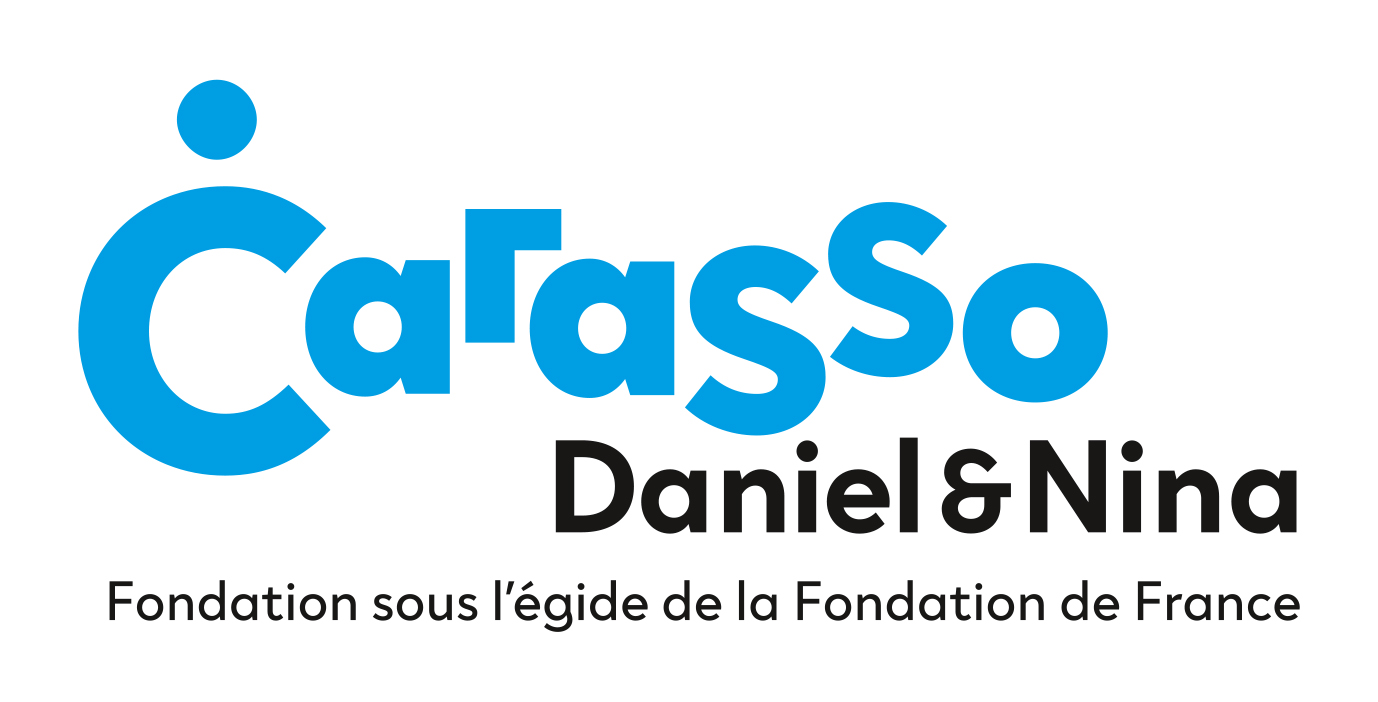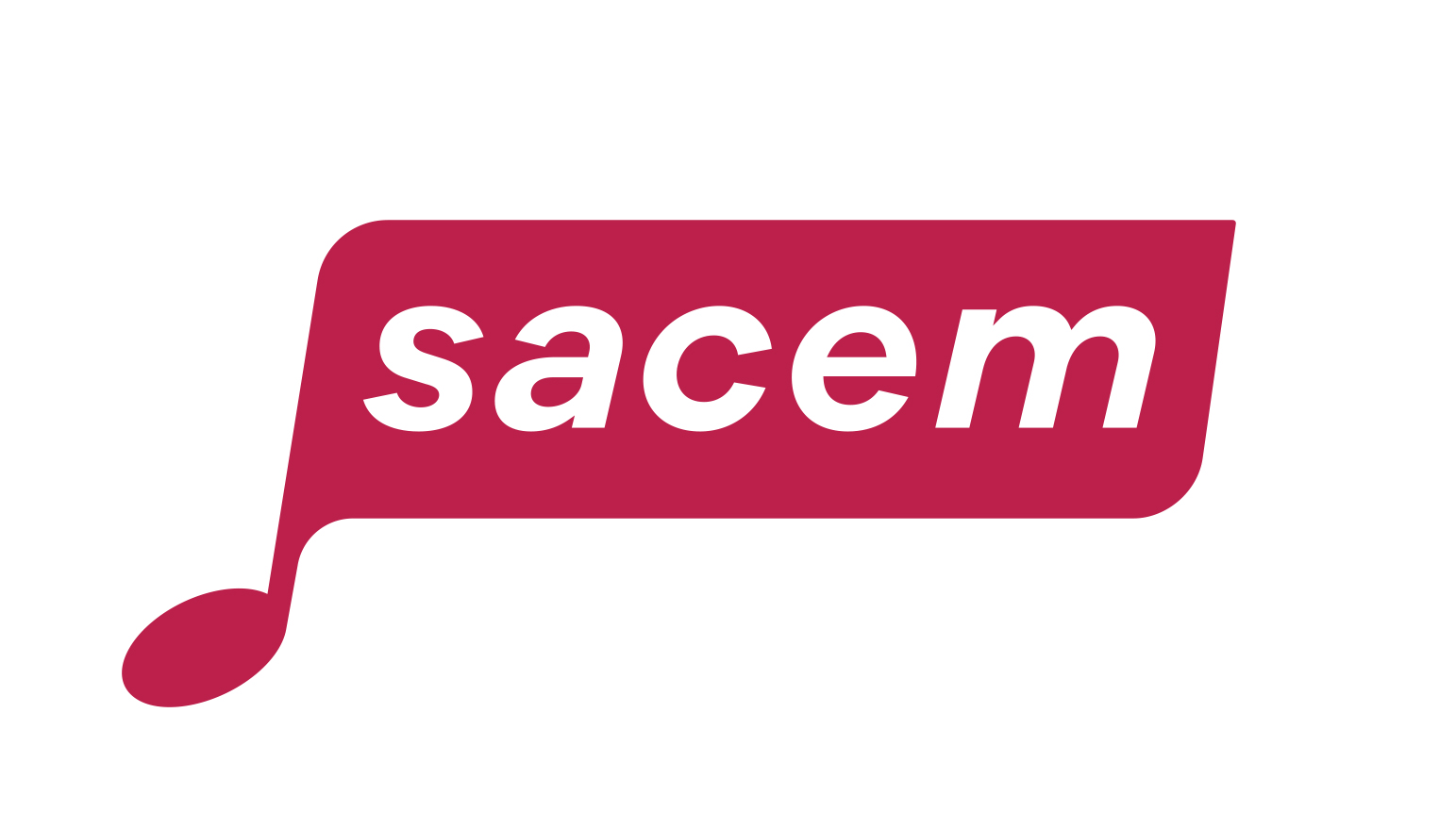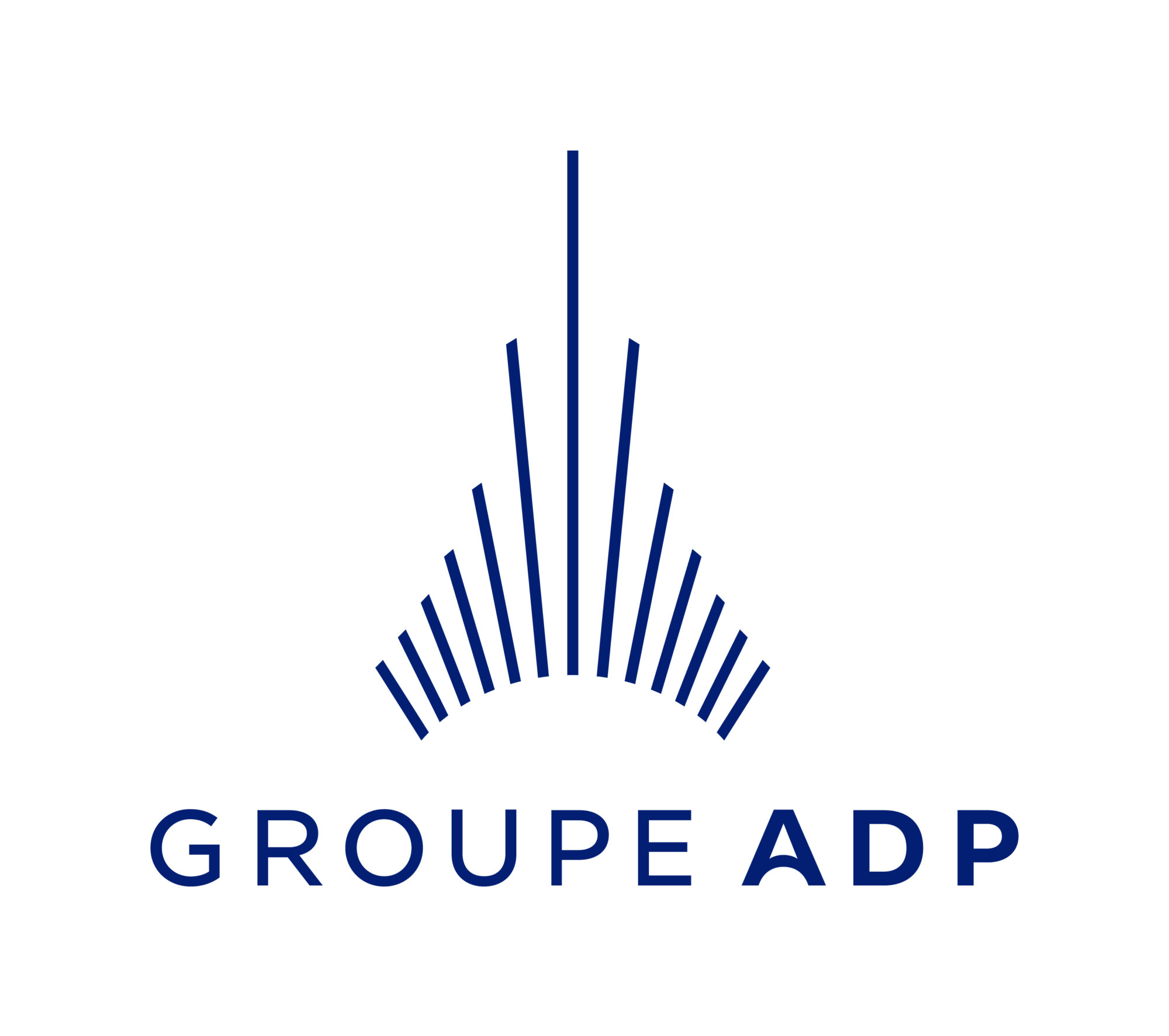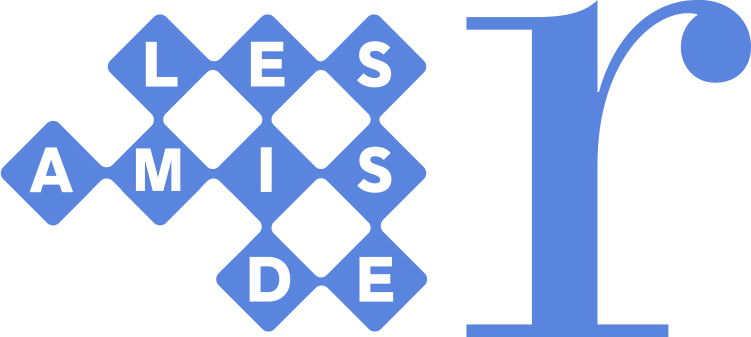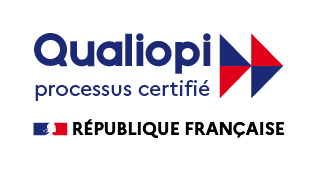Avec Dmitri Kourliandski, Clemens Gadenstätter, Frédéric Durieux, Ensemble Ictus, Johanna Vargas, Marie Ythier
Présentation
L’Académie Voix Nouvelles présente une opportunité unique, pour les compositeurs, de progresser avec des professeurs reconnus, et de collaborer avec des interprètes de premier plan.
Elle recrée le processus complet de création d’une nouvelle œuvre, dans des conditions professionnelles : commande, écriture, répétitions, concert, sous la supervision de professeurs de renommée internationale et d’esthétiques diverses.
L’Académie constitue, de par sa longueur et ses conditions exceptionnelles de travail, un lieu d’échanges unique entre compositeurs, interprètes, penseurs.
Encadrement
Frédéric Durieux ; compositeur (France, 1959)
Né le 27 février 1959 à Paris, Frédéric Durieux a effectué ses études au Conservatoire National Supérieur de Musique et de Danse de Paris (CNSMDP) et a poursuivi sa formation à l’IRCAM en informatique musicale. De 1987 à 1989, il est pensionnaire de la Villa Médicis, Académie de France à Rome. Depuis 1983, Frédéric Durieux a reçu de nombreuses commandes et a été joué en Europe, en Asie & sur le continent Américain. Son catalogue d’œuvres comprend des partitions pour solistes, ensemble, orchestre, voix avec ou sans électronique, elles font souvent référence à des auteurs poétiques et dramatiques (Yves Bonnefoy, Samuel Beckett, Howard Barker, Paul Celan, Emmanuel Hocquard & Philippe Beck) ou des artistes plasticiens (Cy Twombly, Barnett Newman). L’ensemble de ses partitions sont publiées aux éditions Jobert (Paris, France) pour ses œuvres composées entre 1982 et 2003 puis aux éditions musicales Rai Com (Rome et Milan, Italie) avec qui il est sous contrat d’exclusivité pour toutes ses partitions composées depuis 2003.
Frédéric Durieux est par ailleurs professeur de composition au Conservatoire de Paris (CNSMDP) depuis 2001 et donne des master class dans de nombreux pays (Allemagne, Autriche, Chine, Corée, Italie, Japon, Portugal, Royaume-Uni, Suisse, Suède & Norvège).
Frédéric Durieux a été l’un des encadrants de l’Académie Voix Nouvelles de 2018 et apportera à nouveau son témoignage en 2020.
Frédéric Durieux a reçu en 2010 le Prix de la Fondation Prince Pierre de Monaco puis, en 2016, et le Prix Florent Schmitt de l’Académie des Beaux-Arts (Institut de France) ; il est Officier dans l’Ordre des Arts & Lettres (France).
En 2019, paraît L’Espace des possibles (Editions Aedam Musicae), publié en collaboration avec le musicologue Laurent Feneyrou, qui regroupe ses écrits et entretiens publiés de 1986 à 2018, l’ouvrage comprenant de nombreux inédits écrits en vue de la publication de ce livre.
Clemens Gadenstätter ; compositeur (Autriche, 1966)
Clemens Gadenstätter a étudié la composition avec Erich Urbanner et Helmut Lachenmann. Il a également obtenu un diplôme en interprétation (flûte) à l’Université de musique et des arts du spectacle de Vienne.
L’entreprise musicale de Gadenstätter explore la resynthèse compositionnelle de la perception, de la sensation et du sentiment. Pour lui, cela devrait réunir la trinité de l’écoute, de la compréhension et de la composition.
Ses travaux récents portent sur la transformation de sentiments préformés déclenchés acoustiquement (dans la série E.P.O.S. : les premiers cris, les cris des lumières, les derniers cris pour différents arrangements d’ensemble ; “HÖREN VERSTEHEN KOMPONIEREN” [LISTENING COMPREHENSION COMPOSITION] – Essai) ; le travail quotidien et le banal (dans Semantical Investigations 1 pour violon et ensemble, Semantical Investigations 2 pour petit ensemble ; ainsi que l’essai, “Was heißt hier banal” [Qu’entendons-nous par banal ? ) ; la poly-modalité de l’écoute (platzen/bersten pour violoncelle et piano, häuten, schlitzen, reißen, String Quartet 1, 2, and 3, ES, minimal opera for voice, ensemble, and film ; les derniers cris / E.P.O.S. 1 ; les cris des lumières / E.P.O.S. 2 ; les premiers cris / E.P.O.S. 3) ainsi que l’iconographie musicale (la série ICONOSONICS 1 – 3). Actuellement, Gadenstätter a revigoré son engagement avec d’autres médias : les cris des lumières pour ensemble et lumière ; et daily transformations pour voix, instruments, électronique, vidéo, espace et lumière, une œuvre réalisée en collaboration avec Anna Henckel-Donnersmark (film) et Lisa Spalt (texte).
Ensemble Ictus (Belgique)
*2017 : concert Interstices avec Amir ElSaffar.
*1997 et 1999 : concerts sessions Voix Nouvelles. 2003 : Spectacle An Index of Metals Lekovich, Pachini, Romitelli, Romoli.
Ictus est un ensemble de musique contemporaine bruxellois, qui cohabite depuis 1994 avec l’école de danse P.A.R.T.S et la compagnie Rosas (dirigée par Anne-Teresa De Keersmaeker), avec laquelle il a déjà monté quinze productions, de Amor Constante à Repertoire Evening. Ictus a par ailleurs travaillé avec d’autres chorégraphes : Wim Vandekeybus, Maud Le Pladec, Noé Soulier, Eleanor Bauer, Fumiyo Ikeda, Etienne Guilloteau.
Ictus construit chaque année une saison à Bruxelles, en partenariat avec le Kaaitheater et Bozar. Cette saison permet d’expérimenter de nouveaux programmes face à un public cultivé mais non spécialisé, amateur de théâtre, de danse, de performance et de musique. Ictus y travaille la question des formats et des dispositifs d’écoute : concerts très courts ou très longs, programmes cachés, concerts commentés, concerts-festivals où le public circule entre les podiums (les fameuses Liquid Room présentées dans toute l’Europe).
Ictus a partagé, et parfois exacerbé, les interrogations de son époque quant au devenir de la musique contemporaine. Rassemblé initialement autour du chef d’orchestre Georges-Elie Octors, à une époque où les ensembles se pensaient comme des mini-orchestres composés de solistes de haute technicité, Ictus a ensuite muté en « orchestre électrique », en engageant par exemple un ingénieur du son régulier au rang d’instrumentiste, puis en collectif plurivalent de musiciens créatifs, dédiés aux musiques expérimentales au sens large.
Parmi la vingtaine de CD publiés par Ictus, les deux albums consacrés à Fausto Romitelli sur le label Cyprès ont marqué leur époque par leur interprétation et leur mixage. Ictus partage à présent ses sorties discographiques entre le label SubRosa et la plateforme Bandcamp, tout en documentant son travail sur une chaîne Youtube.
Ictus anime un cycle d’études : un Advanced Master dédié à l’interprétation de la musique contemporaine, en collaboration avec la School of Arts de Gand et l’ensemble Spectra.
Johanna Vargas ; soprano
Artiste en résidence à Royaumont (2021-2024)
*2021 : concert Countless au Festival de Royaumont.
Johanna Vargas compte parmi les sopranos les plus polyvalentes et les plus recherchées dans le domaine de la musique contemporaine. En 2020, la soprano colombienne s’est produite avec les Neue Vocalsolisten Stuttgart aux côtés de l’Orchestre philharmonique de Berlin sous la direction de Sir Simon Rattle. Membre des Vocalsolisten depuis 2020, elle a également participé régulièrement à des festivals de musique contemporaine de renommée internationale, se produisant sous la baguette de Dennis Russell Davies à Naples, avec Peter Rundel et l’Ensemble Musikfabrik à Cologne, à la ManiFeste IRCAM à Paris, avec l’Ensemble Recherche aux Journées de musique de chambre contemporaine de Witten, et étant une habituée du Festival ECLAT de musique contemporaine de Stuttgart.
Forte d’une formation complète et d’une expérience dans des genres allant du bel canto à la musique pop, Vargas commande une gamme d’expressions vocales qui lui ont apporté un succès critique, populaire et compétitif dès son plus jeune âge. En 2015, elle a reçu le prix d’interprétation Hanns Eisler à Berlin, suivi en 2018 du prix John Cage à Halberstadt et d’une bourse d’interprète à NUNC!3, la troisième édition de la conférence et du festival de musique nouvelle de la Northwestern University (NUNC) à Chicago.
La beauté vocale et la virtuosité de la colorature de Johanna Vargas s’accompagnent d’une présence physique et d’un jeu d’acteur irrésistibles, aussi à l’aise dans les environnements théâtraux et expérimentaux que dans les exigences nuancées de la musique de chambre et du solo en salle de concert.
Cette polyvalence lui a permis de se produire avec le SWR Vokalensemble au Festspiel de Salzbourg, au Festival biennal de musique contemporaine de Francfort et au Festival de musique de chambre de Paris. Cette polyvalence l’a conduite à se produire avec le SWR Vokalensemble au Festspiel de Salzbourg, au festival biennal de musique contemporaine de Francfort et au Musikfest de la Philharmonie de Berlin, ainsi qu’avec l’Ensemble Cantando au Teatro Colón de Buenos Aires. Vargas donne la parole à sa propre initiative artistique en se produisant régulièrement en tant que moitié du duo LAB51, en partenariat avec la pianiste Magdalena Cerezo.
La riche expérience de Vargas en matière d’opéra et de théâtre musical souligne sa polyvalence en tant qu’artiste de scène, couvrant toute la gamme des périodes et des styles, du répertoire classique au moderne. En 2020, elle s’est produite dans Irrgarten dans le cadre de la série “Aus dem Home Studio” (Du Home Studio) des Neue Vocalsolisten, et dans Frame de Malte Giessen dans le cadre du festival Eclat de Stuttgart.
En 2018, elle a joué dans l’opéra Begehren (Désir) de Beat Furre au Teatro Colón, à Buenos Aires. Son expérience du répertoire d’opéra classique comprend les rôles-titres de Hänsel und Gretel de Humperdinck et Rodelinda de Haendel, ainsi que Zerlina dans Don Giovanni de Mozart, Miss Jessel dans The Turn of the Screw de Britten, et la sorcière dans Dido and Æneas de Purcell.
Johanna Vargas a travaillé avec des artistes de renom tels que Sir Simon Rattle, Emilio Pomárico, Peter Rundel, Marcus Creed, Beat Furrer, Hans-Joachim Hespos, Bernhard Lang, Johannes Kreidler, Carola Bauckholt, Hans-Joachim Hespos, Wolfgang Rihm, Malte Giessen, Juliana Hodkinson, Sarah Maria Sun, Donatienne Michel-Dansac, Andreas Eduardo Frank, Julia Mihaly, Thomas Hampson, Evelyn Tubb et Anthony Rooley, ainsi qu’avec de nombreux ensembles de musique contemporaine de premier plan, dont l’Ascolta Ensemble, l’Ensemble Recherche et l’Ensemble Musikfabrik. Les fruits de ces collaborations, dont beaucoup sont des premières mondiales, peuvent être entendus dans les nombreux enregistrements de Vargas sur CD et à la radio (Deutschlandfunk Kultur, WDR, Naxos, SWR).
Johanna Vargas est diplômée de la Pontificia Universidad Javeriana de Bogotá, de l’Université des Arts de Brême et des Universités de Musique de Karlsruhe et de Stuttgart. Elle a étudié auprès d’artistes de premier plan tels que Hartmut Höll, Mitsuko Shirai, Angelika Luz et Georg Nigl. Depuis 2018, elle donne des cours de performance vocale contemporaine à l’université de musique de Karlsruhe.
Marie Ythier ; violoncelle
Artiste en résidence à Royaumont (2021-2024)
*2021 : concert Countless au Festival de Royaumont.
Musicienne classique, mais aussi engagée dans une démarche de création auprès des compositeurs de sa génération, la violoncelliste Marie Ythier a déjà à son actif cinq disques, dont Une Rencontre, autour des oeuvres de R. Schumann et T. Murail (Divine Art Recordings, Naxos 2019), qui a reçu les éloges de la presse internationale. Formée auprès d’Anne Gastinel, Miklos Perenyi, Philippe Muller, Gary Hoffmann et Heinrich Schiff, elle est régulièrement invitée dans des salles prestigieuses (Philharmonie de Paris, Auditorium de Dijon…) et se produit en soliste dans le monde entier (Kuhmo Festival, FIMC Lima, Suona Francese Italia, Festival Messiaen au Pays de la Meije, CMMAS de Morelia, CENART de Mexico, Luzern KKL…).
Marie Ythier travaille régulièrement avec des compositeurs tels qu’Ivo Malec, Gilbert Amy, Tristan Murail, Pierre Boulez…et est déjà dédicataire d’une vingtaine de pièces écrites pour elle. Elle intègre souvent des ensembles anglais, italiens, allemands, et joue en soliste sous la direction de chefs de renom (P. Boulez, P. Csaba, C. Power…).
Passionnée par la transmission, elle est professeur de violoncelle au CRD d’Aulnay-sous-Bois, professeur invitée au conservatoire national supérieur de Lima, et donne des masterclasses en France, en Asie, et en Amérique latine.
Marie Ythier, de par ses expériences musicales variées, est une artiste dont l’éclectisme et l’ouverture d’esprit se révèlent dans l’intérêt particulier qu’elle voue à la musique nouvelle. Elle aborde aussi volontiers le répertoire de toutes les époques, en musique de chambre ainsi qu’en soliste.
Lauréate de nombreux prix nationaux et internationaux (1er prix du concours de violoncelle des Zonta Clubs, lauréate Mécénat Société Générale, fondation Meyer, Adami…), Marie Ythier est diplômée des CNSM de Lyon et du CNSM de Paris où elle a effectué un 3è cycle supérieur. Marie Ythier est lauréate de la fondation Salabert ainsi que de la Fondation de France pour l’année 2015. Artiste en résidence à Monceau Assurances en 2017, lauréate de la fondation Cordes Sensibles, et enfin artiste associée de l’Adami depuis 2018, Marie Ythier est désormais artiste associée de la Fondation Singer-Polignac depuis Juin 2018 et membre actif du Collège Contemporain depuis 2019. Elle vient d’être nommée artiste en résidence à la Fondation Royaumont jusqu’en 2024.
Marie Ythier joue un violoncelle Bernardel Père prêté par l’association Talents et Violoncelles depuis 2019.
Dmitri Kourliandski ; compositeur (Russie, 1976)
DU YUN, née et élevée à Shanghai, en Chine, et actuellement basée à New York, travaille à l’intersection de l’opéra, de l’orchestre, du théâtre, du cabaret, de la musique, de la tradition orale, des performances publiques, de l’électronique, des arts visuels et du bruit.
Connue pour son “originalité implacable et sa conscience sociale inébranlable” (The New Yorker), le deuxième opéra de Du Yun, Angel’s Bone (livret de Royce Vavrek), a remporté le prix Pulitzer 2017 ; en 2018, elle a été nommée Guggenheim Fellow ; et en 2019, elle a été nominée pour un Grammy Award dans la catégorie meilleure composition classique pour son œuvre Air Glow. En tant qu’interprète et chef d’orchestre (Ok Miss) passionnée, sa personnalité sur scène a été décrite par le New York Times comme “une diva indie pop avec un bord avant-gardiste.”
Du Yun est professeure de composition à l’Institut Peabody et professeure invitée distinguée au Conservatoire de musique de Shanghai.
Du Yun a été membre fondatrice de l’International Contemporary Ensemble ; elle a été directrice artistique du festival MATA (2014-2018) ; elle a conçu le Pan Asia Sounding Festival (National Sawdust) ; elle a fondé FutureTradition. Du Yun a été nommée l’une des 38 grands immigrants par la Fondation Carnegie (2018), “artiste de l’année” par le Festival de musique de Pékin (2019) et a reçu le prix Berlin de l’American Academy (2021).
Destinataires
11 compositeurs / compositrices
Méthode
- Cours individuels (2 avec chaque intervenant compositeur.trice) ;
- Cours collectifs (2 avec chaque intervenant compositeur.trice) ;
- Séances d’échanges en vidéoconférence entre l’ensemble, les solistes professionnels invités et les compositeurs.trices, avant la remise des œuvres ;
- Présentation par chaque compositeur.trice de son parcours et de son travail ;
- Certains instruments spécifiques bénéficieront d’une présentation spécifique, en vidéoconférence, par les instrumentistes et chanteurs professionnels invités afin de faciliter le processus d’écriture ;
- Présentation des techniques instrumentales particulières par les instrumentistes et chanteurs des ensembles ;
- Séance collective de management (création d’un ensemble, réseau de la musique contemporaine…) ;
- Répétitions sous formes de workshops ;
- Concerts publics présentant les travaux finaux, avec captation audiovisuelle.
Ce cours concerne uniquement la création de nouvelles œuvres, spécialement écrites pour l’occasion.
Calendrier de remise de la partition :
50% de la partition le 1er juin 2022
75% de la partition le 1er juillet 2022, avec un programme en anglais et français à propos de l’œuvre (1200 caractères espaces inclus)
95% de la partition le 1er août 2022
Effectifs vocaux et instrumentaux
Les formations instrumentales suivantes sont proposées pour l’écriture des pièces. Chaque candidat doit, obligatoirement, indiquer un choix de trois formations préférées, qui sera respecté dans la mesure du possible. Cette indication est indispensable à l’instruction du dossier : la candidature sera estimée non valide si elle est manquante.
Liste des formations :
- Formation 1 : soprano, flûtes, trompette, violon, viole de gambe/flûtes Paetzold, contrebasse, claviers, percussion
- Formation 2 : soprano, flûtes, violon, violoncelle, contrebasse, claviers, guitare électrique/acoustique
- Formation 3 : flûtes, trompette, violon, violoncelle, contrebasse, claviers, guitare électrique/acoustique, percussion
- Formation 4 : soprano, viole de gambe/flûtes Paetzold, guitare électrique/acoustique
- Formation 5 : soprano, viole de gambe, violoncelle
- Formation 6 : trompette, viole de gambe/flûtes Paetzold, claviers, guitare électrique, percussion
- Formation 7 : flûte, trompette, violon, viole de gambe/flûtes Paetzold, contrebasse
- Formation 8 : soprano (Johanna Vargas)
- Formation 9 : violoncelle (Marie Ythier)
- Formation 10 : 2 sopranos, trompette, percussion
Comment s’inscrire
Sélection sur dossier via la Plateforme Ulysses
Eléments à fournir :
- Biographie
- CV
- Lettre de motivation : mise en avant des compétences et qualités, raisons motivant le souhait de participer à l’Académie, idées courtes sur le projet. Indiquer obligatoirement quels sont les 3 effectifs souhaités parmi la liste des 10 formations proposées ci-dessus [les demandes qui ne mentionnent pas ces informations ne seront pas prises en considération].
- Photo
- Trois partitions et les trois enregistrements correspondants ; des enregistrements de bonne qualité sonore sont indispensables. Les maquettes ne sont pas acceptées.
Date limite d’inscription : 9 janvier 2022 (23h55)
Tous les programmes de formation de la Fondation Royaumont ont un délai d’accès à minima de 11 jours ouvrés.
Exemple : si la Fondation Royaumont valide la demande d’inscription le 14 juin, elle peut proposer au bénéficiaire une formation qui commence le 29 juin.
Résultats : 1er février 2022
Calendrier
Session compositeurs
du 19 août au 4 septembre 2022
soit 15 jours de formation – 105 heures
Présentations publiques :
Concerts le 4 septembre 2022 dans le cadre du Festival de Royaumont 2022
Fiche programme
Effectif plancher/plafond
Effectif plancher : 10 compositeurs
Effectif plafond : 14 compositeurs
Pré-requis et conditions d’accès à la formation
Jeunes compositeurs professionnels en cours d’études supérieures ou justifiant d’une expérience professionnelle.
Les participants s’engagent formellement à suivre l’intégralité du cursus, soit 15 jours de formation.
Les conditions d’accès sont transmises pendant la formation.
Compétences visées / objectifs opérationnels
A l’issue de la formation le bénéficiaire sera capable de :
- Composer une œuvre nouvelle pour un effectif artistique et dans un temps donnés
- Communiquer sur son parcours, sa démarche, son œuvre
- Communiquer ses intentions artistiques aux interprètes de son œuvre
- Intégrer les limites techniques d’interprétation de l’œuvre exprimées par les interprètes
Objectifs pédagogiques
Connaissances
- Approfondir les connaissances théoriques sur un répertoire spécifique
Savoir-faire
- Utiliser les spécificités techniques pour créer une œuvre nouvelle et présenter le fruit de ce travail en public lors de la restitution finale
Savoir-être
- Trouver les meilleures modalités pour partager ses intentions artistiques et intégrer dans son processus d’écriture les limites techniques des interprètes
- Partager son projet avec un public lors de la restitution finale
Déroulé/contenu de la formation
| EN AMONT DE LA FORMATION | Rencontres entre les participants à la formation. Certains instruments spécifiques bénéficieront d’une présentation dédiée afin de faciliter le processus d’écriture. Travail personnel en auto-formation en amont de la formation : composition de l’œuvre pour les compositeurs.trices, selon un calendrier précis. | Une rencontre collective avec les bénéficiaires et le responsable pédagogique, plusieurs rencontres en groupes entre les bénéficiaires et les intervenants). En vidéoconférence, par les instrumentistes et chanteurs professionnels invités. |
| SEMAINE 1 | Accueil des participants à la formation : présentation des bénéficiaires, de l’équipe encadrante et administrative, des lieux et du déroulé de la formation. Rappel des compétences visées/objectifs opérationnels, des objectifs pédagogiques et du déroulé/contenu de la formation. Les compositeurs.trices reçoivent des cours individuels (2 par intervenant, soit 6 en tout) et des cours collectifs (2 par intervenant, soit 6 en tout). Les compositeurs.trices présentent leur propre travail (parcours, démarche, œuvres réalisée, œuvre en cours). Les compositeurs.trices finalisent leur partition finale. | Cette semaine est animée par le référent pédagogique et les intervenants de la semaine 1. Cours animés par les intervenants compositeur.trices. Chaque compositeur.trice présente son travail aux autres participants à la formation. |
| SEMAINE 2 | Répétitions sous formes de workshops. Séance collective de management (création d’un ensemble, réseau de la musique contemporaine…). Concerts publics présentant les travaux finaux, avec captation audiovisuelle. | Avec les instrumentistes et chanteurs professionnels invités. Avec le responsable pédagogique. Avec tous les participants à la formation. |
Méthodes mobilisées
Enseignement théorique et pratique
- Cours individuels (2 avec chaque intervenant compositeur.trice) ;
- Cours collectifs (2 avec chaque intervenant compositeur.trice) ;
- Séances d’échanges en vidéoconférence entre l’ensemble, les solistes professionnels invités et les compositeurs.trices, avant la remise des œuvres ;
- Présentation par chaque compositeur.trice de son parcours et de son travail ;
- Certains instruments spécifiques bénéficieront d’une présentation spécifique, en vidéoconférence, par les instrumentistes et chanteurs professionnels invités afin de faciliter le processus d’écriture ;
- Présentation des techniques instrumentales particulières par les instrumentistes et chanteurs des ensembles ;
- Séance collective de management (création d’un ensemble, réseau de la musique contemporaine…) ;
- Répétitions sous formes de workshops ;
- Concerts publics présentant les travaux finaux, avec captation audiovisuelle.
Modalités de suivi et d’évaluation
Pendant la formation en présentiel
Évaluation par le travail pratique du bénéficiaire, de sa réactivité et son aptitude à intégrer les propositions faites par les intervenants.
Pendant la restitution à la fin de la formation : la présentation d’une œuvre devant un public permet d’apprécier les qualités artistiques du bénéficiaire.
Les bénéficiaires signent une feuille d’émargement par demi-journée.
En fin de formation :
Une attestation de fin de formation mentionnant la nature, les objectifs, la durée de formation et les résultats de l’évaluation des acquis de la formation est remise au bénéficiaire.
Le bénéficiaire remplit une fiche d’évaluation qualitative afin d’évaluer la formation d’un point de vue artistique, pédagogique, humain et matériel.
Un suivi post-formation est établi, pour lequel les bénéficiaires sont priés d’informer durant les mois suivants la fin de la formation des opportunités professionnelles qu’ils auront obtenues.
Accessibilité et prise en compte des situations de handicap
La Fondation Royaumont fait de l’accueil et de la participation des personnes en situation de handicap un engagement fort de son projet. Nos formations sont ouvertes aux personnes en situation de handicap et différents aménagements peuvent être envisagés en fonction des spécificités de chaque formation. Afin d’échanger sur vos besoins, contactez-nous au moment de votre inscription.
- Salles et chambres accessibles par ascenseur.
- Equipement écran et enceintes amplifiées
- Restauration au rez-de-chaussée
Référent pédagogique
Jean-Philippe Wurtz, directeur artistique du pôle Création musicale
jp.wurtz@royaumont.com
Référente administrative
Référents handicap
Samuel Agard et Doriane Trouboul
Vidéo
Cet atelier de formation professionnelle est soutenu par la Fondation Daniel et Nina Carasso, la SACEM, Aéroports de Paris, Christine Jolivet Erlih et les Amis de Royaumont.
La Fondation Royaumont est membre du Réseau ULYSSES cofinancé par le programme Europe créative de l’Union Européenne.
